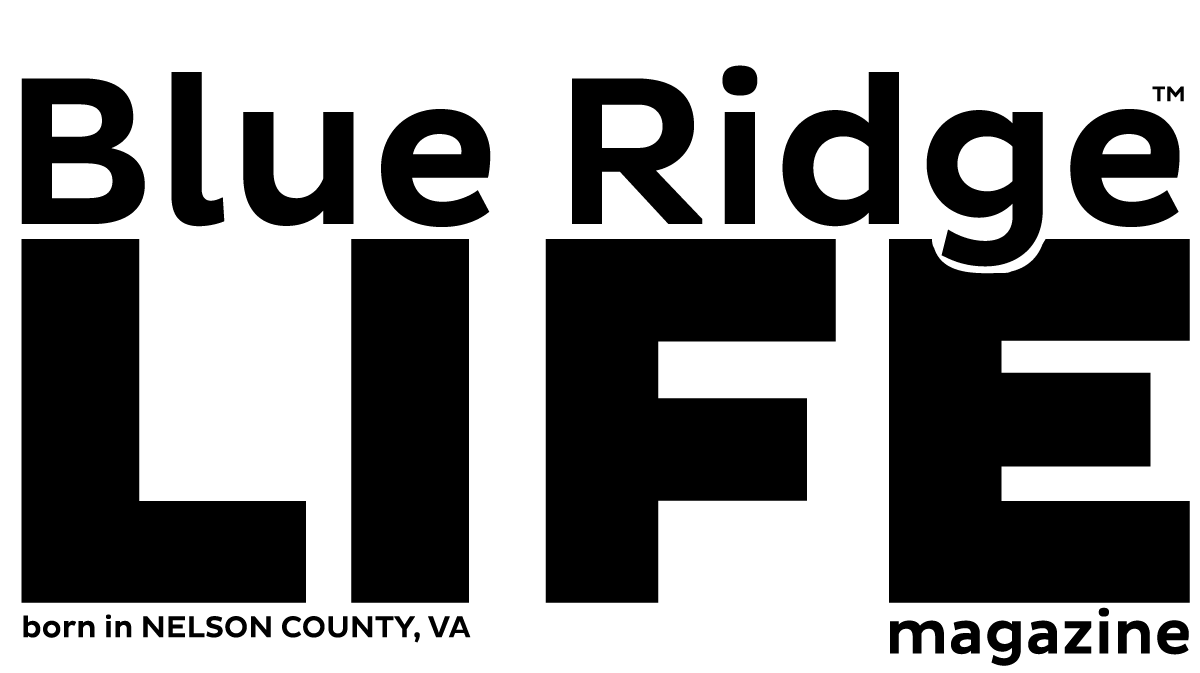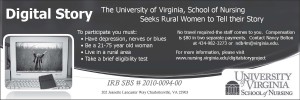Charlottesville, VA
By Communications Intern Maria Wyllie
“Every person has a story to tell, and every story is important,” said Emily Hauenstein, who is a professor at the University of Virginia and the director of the School of Nursing’s Southeastern Rural Mental Health Research Center. She knows there are a lot of women living in rural Virginia who have stories to tell about the challenges they may have confronted and the resulting stress, as well as depression. She wants to help them turn those experiences into digital stories.
Digital storytelling is a type of “talk therapy,” where women tell their stories to a nurse-therapist who helps them turn their stories into short films consisting of personal photos and other mementos that are set to music.
Hauenstein is looking for more women to participate in her research so that she can learn if digital storytelling can be used effectively to ease the symptoms of stress and depression faced by women who live in rural Virginia.
Over the course of six weekly sessions, nurse-therapist Edie Barbero, PhD,RN, meets with the women who participate in the research to help them get their stories “just right” so that the stories say and look the way they want them to. Once the short films are completed, Barbero helps the women decide “who might be the most receptive to hearing their story and who would be encouraging to them,” said the project’s assessment coordinator, Nancy Bolton, RN, NP.
The research requires about twelve hours of time over eight weeks. During the first and last sessions, patients meet with Bolton to answer questions about their health and well-being; “style” when talking to others; memory; and how they think about things. The other six sessions involve meeting with Barbero at the patient’s home or another mutually agreeable site where the patient begins to create her digital story.
At the end of the study, patients will not only have a final product marking their success in narrating their story, but they will also have benefited by gaining confidence and self-satisfaction.
All sessions are tape-recorded so that research staff can learn what does and doesn’t work to help people with story writing and feeling better. Although the sessions are recorded, they are completely confidential. All information is put on a secure University of Virginia computer network server so that only the people involved in the study access it. At the end of the digital story sessions, a DVD of the patient’s story is given to her, and another copy is used to answer research questions.
No computer skills are required to create a digital story, and participants are free to stop if they decide creating a story is not for them. Participants are paid eighty dollars in two separate payments of forty dollars. Payments are made after each of two assessments or question-and-answer sessions at the beginning and end of the study.
There are currently four women participating in the study, and Hauenstein is looking for a total of 25 women in order to strengthen the accuracy of her findings. The women participating seem to be really enjoying the sessions thus far. “I think each woman is feeling valued, and that in itself is empowering for them,” commented Bolton in a recent interview.
While the process of telling their story and creating the video provides the women with a space to speak and be heard, it further empowers them by providing them with a final product that can be used as a mechanism for connecting with others.
If you feel that creating a digital story could help you or a friend please contact Nancy Bolton at 434-982-3273 or ndb4m@virginia.edu to set up an initial eligibility screening.


